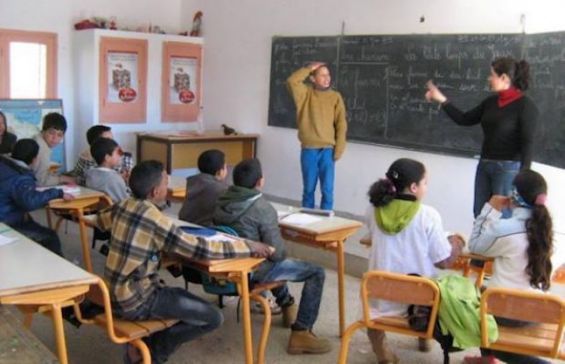Education in the Middle East and North Africa has been at the heart of a World Bank report, published Tuesday and entitled «Expectations and Aspirations : A new framework for education». Examining the methods and the learning pedagogies used in the region, the survey highlights the fact that educational systems in MENA are not achieving the required potential.
Morocco is one of the countries studied by the World Bank report which stressed the importance of «focusing on education, not just as a national priority for economic growth and social development but as a national emergency for stability, peace, and prosperity».
Passive learning and reading
The report criticized the ways in which students in Morocco and in other MENA countries are taught. In fact, 48% of eight-graders in Morocco were asked to memorize scientific facts and principles for «every lesson» in 2015. The method encourages, according to the world bank, passive learning.
The report rebuked the fact that schools in the Kingdom do not pay attention to students’ imagination. «Obedience plays a central role in children’s education in Morocco», stated the report, adding that less than 30% of students' learning time is dedicated to imagination.
«In Morocco, only 36% percent of fourth-grade students reached minimum reading literacy levels», wrote the authors of the report, indicating that only 41% of fourth-grade students reached low international benchmarks in 2015, for mathematics.
For reading, less than 37% of fourth-graders in Morocco were able to achieve the low international benchmarks in 2016. The idea was further explained by the report which quotes an Early Grade Reading report. The latter indicates that «more than one in three second-grade children in Iraq, Morocco and Yemen could not read a single word connected text».
Absenteeism and examinations
Teachers’ absenteeism in the Kingdom was also spotlighted by the report. The World Bank reports that 28% of students in Morocco are affected by «teachers’ absenteeism in the 8th grade».
Absenteeism is not the only thing that hinders the development of the educational system in the North African Kingdom but also examinations set by the teachers. «Morocco’s system of examinations at each level are intended to channel students into educational and vocational tracks», explains the survey, adding that this forces teachers to «use didactic rather than dialogic teaching methods».
It indicates that «Morocco’s goals focus on language acquisition, developing appropriate social skills, understanding civic matters and preparing students for future careers». However, the lack of «adequate» funding is an obstacle to realizing these educational goals despite the 2005 and 2009 reforms.
The report suggests a new framework to overcome the challenged that weaken the educational systems in the MENA region. The World Bank’s approach is based on three main factors : A concerted push for learning that starts early for all children regardless of background, a stronger pull for skills by all stakeholders in the labor market and society that involves coordinated multi-system reforms within and beyond the education system and a new pact for education at the national level with a unified vision, shared responsibilities and accountabilities.





 chargement...
chargement...













